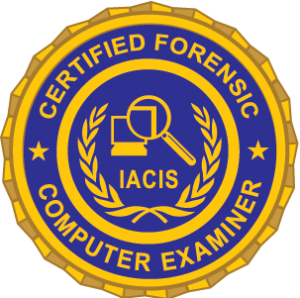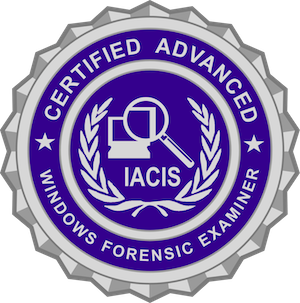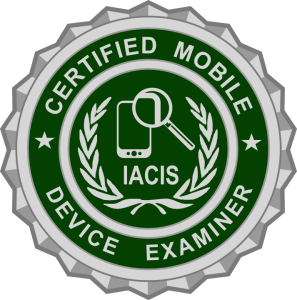The IACIS Basic Computer Forensic Examiner (BCFE) course is the cornerstone training provided by IACIS. BCFE is a 76-hour course of instruction that is offered over 2 consecutive weeks and is designed to provide students with a foundational knowledge of digital computer forensics to be able to enter into the IACIS Certified Forensic Computer Examiner (CFCE) certification process. This training involves a combination of lectures, instructor-led and independent hands-on practical exercises, and independent laboratory activities which help the student learn the underlying principles of digital computer forensic theory and examinations and how to apply them in practice.
While the name of the training does include the word “Basic”, over the years it has evolved into more than that. Students are expected to be familiar with the Windows operating system; they should be able to maneuver their way around different settings in Windows like the Control Panel and Task Bar; and be familiar with terminology associated with Windows like “registry” and “hidden files”. This is a very fast-paced training and as such, having knowledge of rudimentary Windows functions and settings will help the student keep on pace with the material being presented.
This course may seem like it is primarily for those who are beginners in the field of computer forensics, however, it is equally suited for those who are advanced students and experienced practitioners. IACIS and the BCFE program champions a forensic tool neutrality and an independent methodology approach to learning computer forensics. This enables IACIS to provide students with a deeper exploration of underlying principles than might be afforded in other programs, which are designed to teach students how to use a forensic tool to complete a task.
Approximately 90% of what is needed for students to successfully complete the IACIS BCFE course and the subsequent certification process is provided during course lectures and practical exercises. For the CFCE certification process, students will be expected to complete additional outside reading and perform additional independent research.




